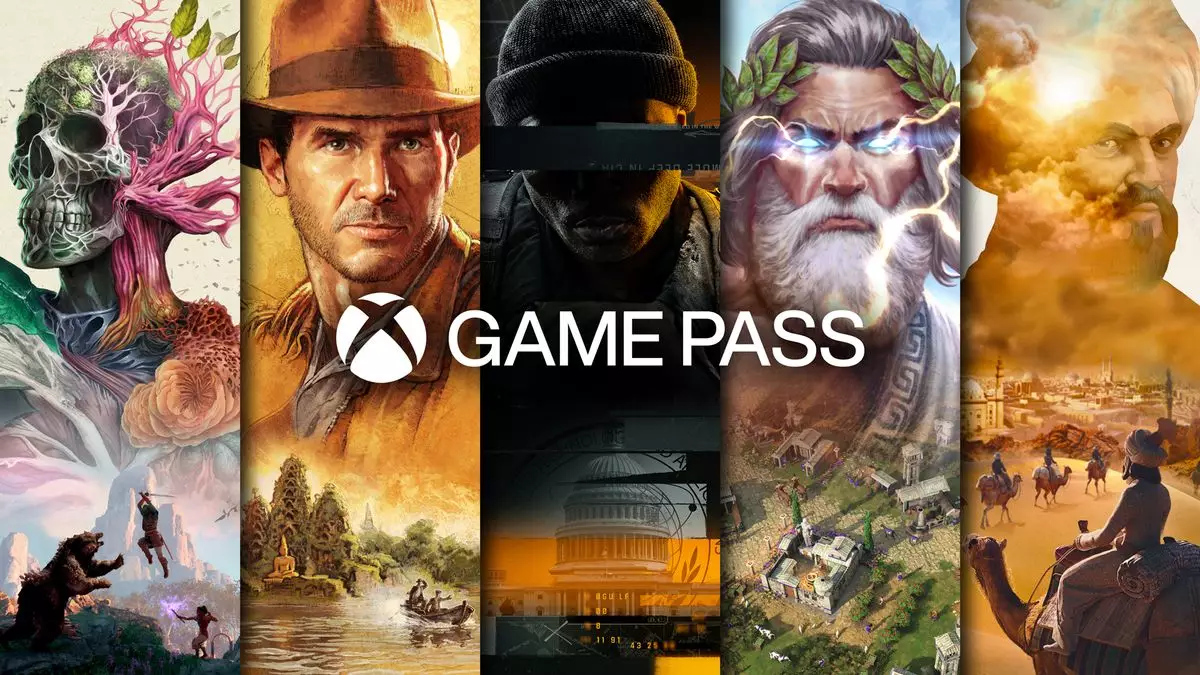In the ever-evolving landscape of the gaming industry, a significant shift is apparent, particularly in the approach of major corporations like Microsoft. The era characterized by fierce rivalry between consoles, especially Xbox and PlayStation, is gradually becoming a thing of the past. Phil Spencer, the CEO of Microsoft Gaming, epitomizes this new philosophy, advocating for a more inclusive gaming experience that caters to a broader audience rather than trying to convert them exclusively to Xbox.
Historically, the discourse surrounding gaming consoles has heavily leaned toward competition, with manufacturers vying for exclusive titles and user loyalty. Spencer’s vision diverges drastically from this traditional model. He recognizes that a rigid approach to monopolizing the market is neither feasible nor beneficial in the long run. Instead, his strategy opens the doors to cross-platform gaming, a move that not only enriches the gaming experience but also acknowledges the reality that gamers are often loyal to certain platforms for a variety of reasons.
This shift can be seen in Microsoft’s decision to port popular games like *Grounded* and *Sea of Thieves* to rival platforms such as the PlayStation and Nintendo Switch. By doing so, Microsoft is not merely relinquishing its competitive stance but is redefining what it means to be a successful gaming company in a highly saturated market. Above all, Spencer emphasizes the importance of expanding access to games, fostering a community where inclusivity reigns supreme over exclusivity.
One of the critical elements of Spencer’s approach involves the financial realities faced by game developers and publishers. Although Xbox retains a more significant profit margin when sales occur on its own platform—keeping 100% of revenue compared to 70% when selling through other platforms—Spencer acknowledges that revenue isn’t the sole metric of success. He implies that the long-term benefits of sharing games across platforms heavily outweigh short-term financial gains.
The idea is rooted in Spencer’s belief that “games should be the thing that’s at the forefront.” His message resonates as a call to prioritize enjoyable gaming experiences over competitive financial strategies. By allowing more players to engage with Xbox franchises, whether on PlayStation, Nintendo Switch, or any platform, Microsoft builds a brand that could foster loyalty in consumers who may eventually consider matriculating to their hardware for a more immersive gaming experience.
Transparency has become a thematic element in Spencer’s dialogue around the future of Xbox. The latest Xbox Developer Direct presentation signaled a tangible shift in how games are showcased. Instead of concealing the presence of titles on rival platforms, the logos of PlayStation and Nintendo Switch are now prominently displayed. This decision is not just about where games can be played but also an invitation for gamers to choose their preferred platform while still enjoying Microsoft’s offerings.
This level of openness may transform how consumers interact with brands, as it dismantles the barriers that traditionally isolate console communities. By making it easier for players to understand where to find their favorite titles, Microsoft is not only showing respect for the various gaming communities but also hinting at a future where such transparency could foster a healthier competitive environment.
While Spencer is eager to embrace this collaborative spirit, it is important to note that he remains committed to the core of Xbox. His emphasis on future consoles is a testament to that belief; he has confirmed that a new Xbox will eventually emerge, defying speculation about Microsoft potentially exiting the hardware space altogether. Furthermore, rumors of a next-gen Xbox handheld could signify a desire to innovate while still maintaining a strong foothold in traditional console gaming.
In an industry that is increasingly acknowledging the value of connectivity and shared experiences, Spencer’s philosophy stands out as a forward-thinking approach. Ultimately, this strategy may not only elevate Microsoft’s brand but could also contribute to a more unified gaming community—one where enjoyment and accessibility take precedence over market dominance. As this narrative continues to unfold, it will be fascinating to observe the implications of such a transformative vision for both consumers and the gaming industry as a whole.


Leave a Reply